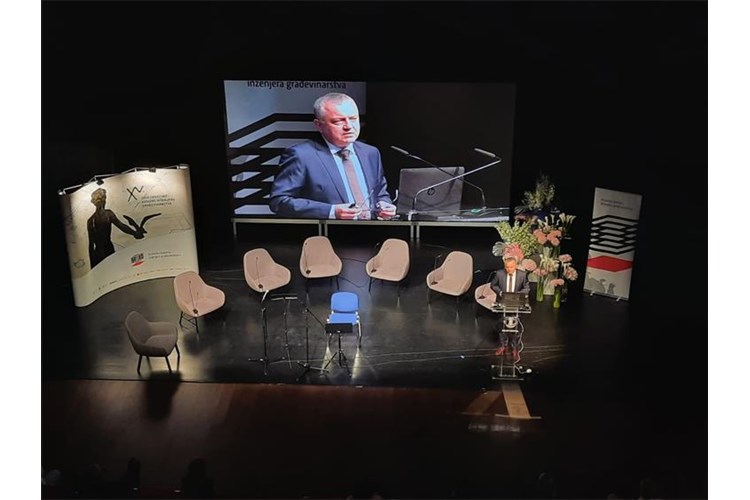(Hina) - Minister of Physical Planning, Construction and State Assets Darko Horvat said on Thursday that post-earthquake reconstruction concerns not just reconstruction but also legalisation of illegally built buildings, with a new approach to physical planning and the process of resolving property rights.
Speaking at the 15th Croatian Chamber of Civil Engineers Days, Horvat underscored that everything that was prepared in the aftermath of the March 2020 earthquake in Zagreb will be used as the basis for the reconstruction of Banovina after a string earthquakes devastated the region in late December 2020.
"The Ministry has sent its first three decisions to the Reconstruction Fund. Three buildings have been demolished pursuant to a public procurement agreement and the next 18 decisions have been submitted to the Fund. There will not be only two a week but many more and the demolition process has begun. At the moment, expert teams from the Ministry, Fund and Central State Office are preparing or completing a programme of measures which will determine new construction in terms of which model will be used and in which areas," said Horvat.
The devastation of soil that occurred in the Banovina region will be a limiting factor in deciding on where reconstruction or new construction will be conducted, he warned.
"This isn't just mere reconstruction, this is a process of renewal, a process of legalisation, a new approach to physical planning and primarily a process to resolve property-related rights," underscored Horvat.
He stressed that regardless of the pandemic and hardships of 2020, the construction sector has registered positive numbers. "We expect a boost in 2021, but not only because of reconstruction. This year will be the first in which, due to generous financial sources, primarily from the EU, we will be back in the investment sector, and not just through reconstruction but with new investments in an effort to achieve a 10 percentage point growth this year. That is one of our key objectives," he claimed.
Responding to reporters, Horvat said that a period of intensive reconstruction lies ahead, with some buildings being older than 100 years, so that any new earthquake does not cause as much damage.
Asked about the labour force in the construction sector, Horvat said that Europe on the whole has problems with finding good tradesmen.
"We have identified the shortage of labour in Croatia after we felt economic growth and new investments and project began. Already then we saw that we need a more liberal approach related to importing labour. The key is that there are not enough good construction workers, producers of building material or managers in our neighbourhood as there are in Croatia. We should be proud of our construction sector and should not allow a labour drain to some other countries," he said.
Asked how to retain the labour force, Horvat said by increasing wages and cutting red tape and parafiscal fees for employers so that that money ends up with their employees.
News |
Information


